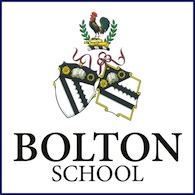Bolton School, and so education in Bolton, is 500 years old this year. That is a remarkable fact, thinking of how Bolton would have been in Tudor times, when Henry VIII was still happily married to his first wife. The school began linked to the Church and was funded by a philanthropist, providing the gift of education. Several of our older local schools have similar roots.
In fact, perhaps even more remarkable than this 500 year span, is how actually very new to society the idea of the state providing education for all is. 70 years is not quite long enough to establish settled expectations in society. I believe it is because this idea of education for all, provided free, is such a new approach in the great span of time that we have so very many heated and protracted differences over the how, what, who, where and especially the why of education today.
Start with the why. Just what is education for? Do we actually all agree? Listen to employers and it is to prepare people for work. Universities might have you believe that it is a preparation for the serious business of studying for a degree. Some teachers will be committed to sharing a passion for their subject, as an end in itself. Others will be committed to the personal development of young people, using subjects as a means to that end. Look at the raft of initiatives (citizenship, health, economic education and so on) and you would think education is about doing whatever we feel is necessary for young people to do that we no longer believe parents will tell them. Hear about school breakfasts and after school clubs and you may think education is simply a national child care service to allow parents to work.
Rather than debate what education is for, the present approach is to emphasise one or the other of these purposes depending on current fashion and occasional whim. Not all of the aims of education conflict with one another, although some do and they all compete for precious time and all require different skills and mind sets from teachers.
The next Great Education debate should be all about deciding once and for all what our schools are for. In the meantime letÆs remember that so many schools do such a good job of deciding what their purpose is and then getting on with doing what they believe in.

Leave a Reply